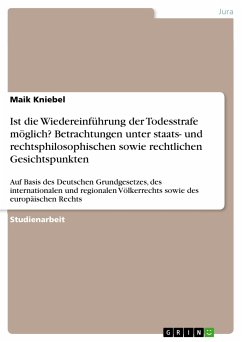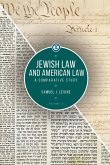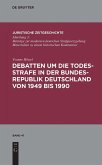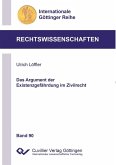Essay from the year 2015 in the subject Law - Philosophy, History and Sociology of Law, grade: 4.00, Indiana University (College of Arts and Sciences - Political Science Department), course: POLS-Y210 Rule of Law, language: English, abstract: This paper hopes to establish the continued forcefulness of Cesare Beccaria's argument against torture and the death penalty by reconciling its reasoning with the societal and legal context of the modern day. Cesare Beccaria, considered one of the founding fathers of Enlightenment penology and legal theory, is perhaps most well known for his treatise On Crime and Punishment in which he argues against punitive administration of torture and capital punishment. This paper analyzes the arguments proposed by Beccaria and reasserts their modern relevance to contemporary legal conversation on the death penalty and government-administered torture. Weaknesses in Beccaria's argument such as his questionably justified causal claims on human behavior are examined, but ultimately found to not render his argument less sound insofar as it seeks to discredit capital punishment. Beccaria's own model of social contract theory is also examined and used as a basis by which to evaluate his legal claims.
Dieser Download kann aus rechtlichen Gründen nur mit Rechnungsadresse in A, B, BG, CY, CZ, D, DK, EW, E, FIN, F, GR, HR, H, IRL, I, LT, L, LR, M, NL, PL, P, R, S, SLO, SK ausgeliefert werden.









